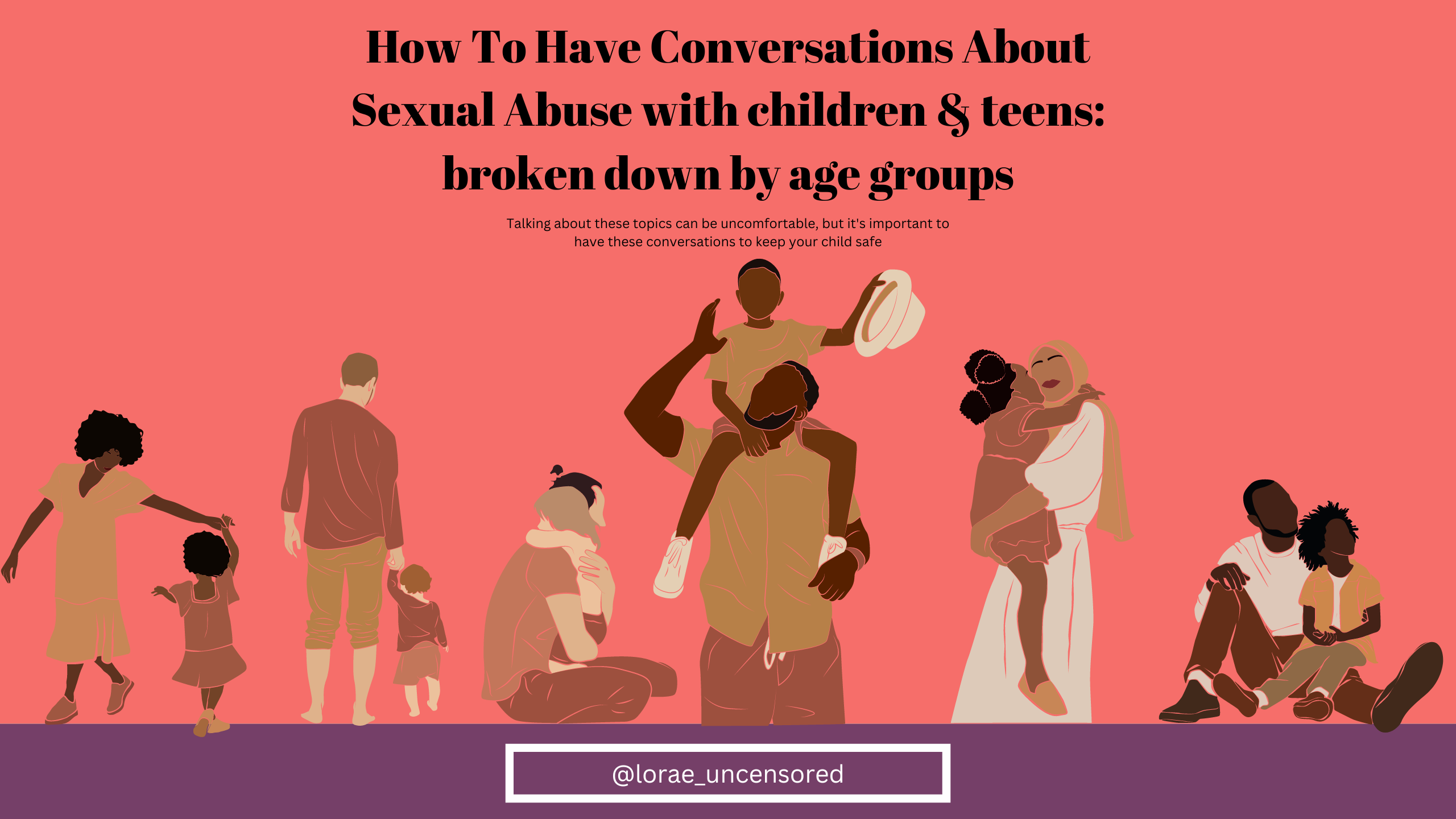
Having conversations about sexual abuse can be difficult, but it’s necessary to break the silence and raise awareness. Bermuda has a high rate of sexual abuse, and it’s crucial for parents and educators to talk to their children about it. Here are tips on how to have difficult conversations about sexual abuse, broken down by age groups:

For younger children (3-9):
Begin by explaining that there are certain parts of their body that are private and should not be touched by anyone without their permission. Use clear and age-appropriate language to explain what these parts are, such as “your vagina or penis.” You can also use a book or visual aids to help illustrate this concept.
Make sure to emphasize that their body belongs to them and that they have the right to say no if someone tries to touch them in a way that makes them uncomfortable. Provide specific examples of what inappropriate touching may look like, such as someone touching their private parts or asking them to touch someone else’s private parts.
When it comes to teaching younger children about good touch and bad touch, using dolls can be a helpful tool. You can demonstrate with the dolls what a good touch is (such as a hug from a family member) and what a bad touch is (such as someone touching a private body part). Use age-appropriate language and be clear that it’s not okay for anyone to touch their private body parts without their permission.
Encourage your child to tell you or another trusted adult if anyone touches them in a way that makes them uncomfortable. Remember, talking about these topics can be uncomfortable, but it’s important to have these conversations to keep your child safe.
For older children (10-13):
Having open communication with older children about sexual abuse is crucial to ensure they understand and feel comfortable discussing the topic. Ask specific questions such as “Do you know what sexual abuse is?” or “Has anyone ever made you feel uncomfortable?” to prompt conversation. Provide a safe and non-judgmental space for them to share their thoughts, feelings, and experiences.
It’s also essential to re-emphasize the importance of saying “no” and setting boundaries. Encourage them to listen to their gut instincts. Remind them that they have the right to change their mind at any time, even if they previously agreed to something. Reassure them that you will always believe and support them no matter what.
For teenagers (14-19):
Teenagers are at a crucial stage in their sexual development and it’s important to provide them with the right guidance to navigate this phase of their life. As a parent or educator, it’s important to have open and honest conversations with them about sexual abuse, to explain to them what consent is, and how it should always be enthusiastic and ongoing. Be specific with them about what constitutes consent and what doesn’t.
Encourage them to always trust their instincts and remind them that it’s never okay for someone to pressure them into any sexual activity. Teach them that it’s okay to say “no” at any point, and that they have the right to change their mind at any time. Discuss with them the different forms of abuse and let them know that they can always seek help if they feel unsafe or uncomfortable. Provide them with information on how to report sexual abuse and where to seek help. It’s crucial to make sure that they understand the importance of speaking up and seeking help when they need it. By having these conversations, you can help your teenager build a healthy and respectful relationship with their body and with others.
Remember that these conversations should be ongoing and not just a one-time talk. Encourage your child to come to you with any questions or concerns and create a safe and supportive environment where they feel comfortable discussing these topics.
In addition to talking to your children, I would recommend educating yourself on the signs of sexual abuse and how to report it. Educators should also receive training on how to recognize and respond to disclosures of sexual abuse from students.
Having difficult conversations about sexual abuse is necessary for breaking the silence and raising awareness. As a community, we need to prioritize protecting our children and ensuring their safety. If you or someone you know has experienced sexual abuse, it is important to seek help and support. One resource available in Bermuda is SCARS (Saving Children and Revealing Secrets), a charitable organization that provides prevention education and awareness at no cost to the community. Their mission is to reduce the risk of child sexual abuse by raising public awareness and promoting healing for survivors.
Prevention is key and by working together, we can make a difference in the lives of our children and our community.
To connect with the author, Kevina Lorae or to support her studies visit her Linktree.






